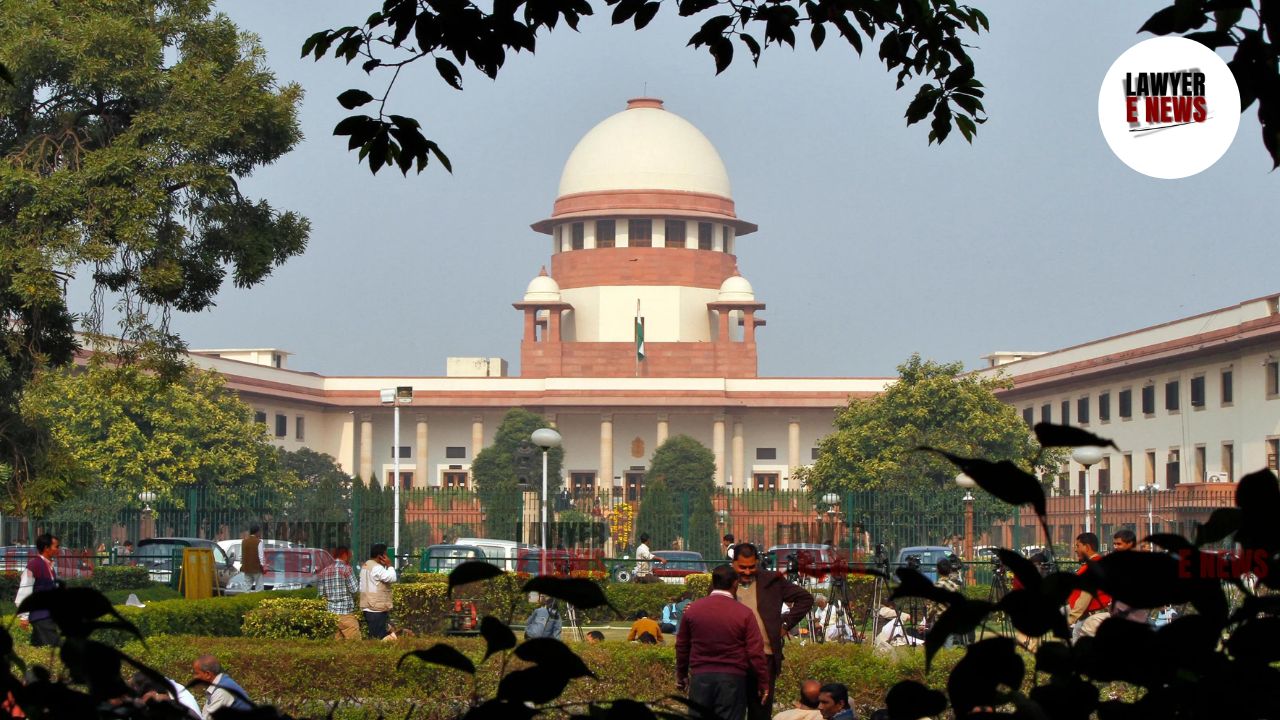-
by Admin
15 February 2026 5:35 AM



Supreme Court of India upheld the findings of misconduct against a Syndicate Bank branch manager accused of misappropriating funds but modified the penalty of dismissal, deeming it disproportionate. Instead, the Court imposed a minor penalty under Regulation 4(e) of the Syndicate Bank Officer Employees (Discipline and Appeal) Regulations, 1976, ensuring no adverse impact on the officer's pension.
The case dealt with allegations of financial fraud and procedural lapses by B.S.N. Prasad, a former branch manager of Syndicate Bank. After being dismissed from service in 2012, Prasad successfully challenged the penalty in the High Court, which ordered his reinstatement on the ground of procedural lapses in the inquiry. The bank appealed to the Supreme Court.
The Supreme Court upheld the misconduct findings, stating that judicial review in disciplinary cases is limited to ensuring fairness and adherence to principles of natural justice. However, considering the respondent’s 21 years of unblemished service and that no financial loss was sustained by the bank, the Court modified the penalty to a lesser punishment.
The respondent, B.S.N. Prasad, joined Syndicate Bank in 1985 and was promoted to branch manager in 2007. While serving at the Mudigubba branch from June 2007 to November 2008, Prasad was accused of:
Fraudulently withdrawing funds from Syndicate Kisan Credit Cards (SKCC) accounts by making fictitious entries and debits without customers' knowledge.
Exceeding sanctioned credit limits in SKCC accounts.
Misappropriating funds under the debt waiver scheme and colluding with others to siphon ₹70,000.
Violating loan sanctioning guidelines, leading to the creation of a Non-Performing Asset (NPA).
An internal investigation found him guilty of these charges. A disciplinary inquiry followed, and in May 2012, the bank dismissed him under Regulation 3(1) read with Regulation 24 of the Syndicate Bank Officer Employees’ (Conduct) Regulations, 1976.
After an unsuccessful appeal to the bank’s Appellate Authority, Prasad challenged his dismissal in the High Court. The Single Judge quashed the dismissal, citing procedural lapses and ordered reinstatement with full back wages. A Division Bench upheld this decision. Aggrieved, the bank approached the Supreme Court.
The Court emphasized that judicial review in disciplinary matters is not akin to an appeal and does not involve reassessing evidence. Instead, courts must determine whether:
The inquiry was conducted fairly.
The findings were based on "some evidence."
Citing B.C. Chaturvedi v. Union of India (1995) 6 SCC 749, the Court stated:
"Judicial review is meant to ensure fair treatment, not to ensure that the conclusion reached by the authority is necessarily correct. The adequacy or reliability of evidence cannot be reexamined in writ jurisdiction."
The Supreme Court found that the disciplinary inquiry against Prasad adhered to principles of natural justice. The respondent had been provided full opportunity to inspect documents, cross-examine witnesses, and present his defense.
The Court reiterated the well-established principle that acquittal in a criminal case does not automatically exonerate an employee in disciplinary proceedings, as the standards of proof are different. While criminal cases require proof beyond a reasonable doubt, disciplinary proceedings rely on a "preponderance of probabilities."
The Court rejected the High Court's reliance on Prasad's acquittal in a criminal case to overturn the disciplinary inquiry findings.
hile upholding the misconduct findings, the Court held that the penalty of dismissal was disproportionate, given the circumstances:
The respondent had an unblemished service record for 21 years prior to the incidents in question.
The financial losses caused by his misconduct were fully recovered.
The respondent consistently admitted his mistakes and expressed remorse.
Referring to Damoh Panna Sagar Rural Regional Bank v. Munn Lal Jain (2005) 10 SCC 84, the Court underscored that bank officers must maintain higher standards of honesty and integrity. However, it also recognized that penalties must be proportional to the gravity of misconduct.
The Court substituted the dismissal with a minor penalty under Regulation 4(e) of the Syndicate Bank Officer Employees (Discipline and Appeal) Regulations, 1976:
"Reducing the respondent to a lower stage in the time scale of pay for a period of one year, without cumulative effect and not adversely affecting his pension."
The Court stressed the importance of balancing the gravity of the offense with the employee’s service record and other mitigating factors.
The Supreme Court allowed the appeal in part, restoring the findings of misconduct but modifying the penalty to a minor punishment. The respondent will receive all retiral dues, including pension, within four months.
This judgment strikes a balance between upholding accountability for bank employees while ensuring fairness in disciplinary actions.
Date of decision : January 21, 2025
